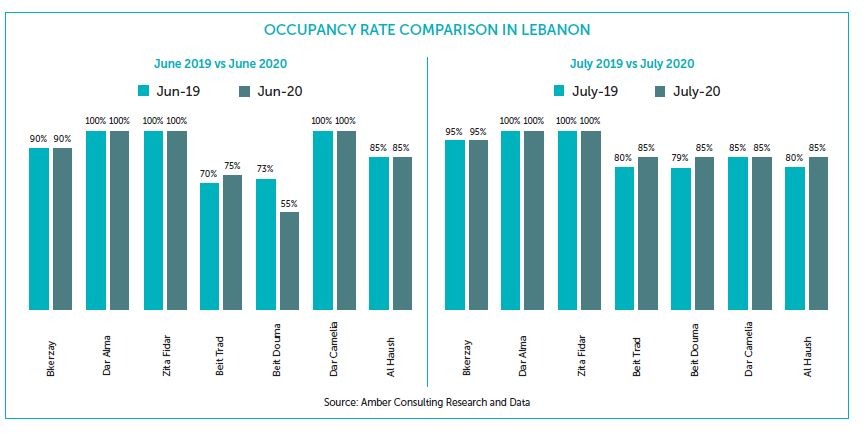As we enter fall, most airports are still deserted. Ralph Nader, CEO of Amber Consulting, discusses the continuing rise in domestic travel.
As the World Tourism Organization (UNWTO) reported, Covid-19 has been by far the worst crisis to affect the international tourism industry since 1950.
People are accepting the fact that traveling, as we once knew it, won’t return anytime soon.
According to research done by Oracle and Skift, after the lengthy “stay-at-home” procedures, everyone is impatiently waiting to travel. About half of those surveyed in North and Latin America plan to book trips in the next six months, and 38 percent of those in Asia-Pacific and Europe are planning getaways.
Not too far from home
With the coronavirus pandemic causing the closure of national borders and the suspension of international travel, the inbound tourism market is almost non-existent. In addition, due to the anxiety linked to being far from home, many would-be travelers consider it safer to stay close to home.
Domestic tourism could become a “life-saver” approach to stimulating economic growth as restrictions are eased in many countries around the world. Thus, governments in emerging markets have begun to explore whether domestic tourism can kick-start their economies. After all, desperate situations call for desperate measures.
Vietnamese people travel to Vietnam destinations” is a new program designed by the Vietnamese government to stimulate domestic tourism. It aims to with develop specific tourism products and tours to meet the needs of local travelers. Meanwhile, airlines, travel agencies, resorts and hotels are offering discounts of up to 50 percent to encourage internal travel. Thailand has also outlined efforts to incentivize domestic travel from July. It is expected that a staggering $31.3bn will be borrowed by the government in 2020-21 and channeled towards incentives and subsidies to help stimulate the industry. Elsewhere in Southeast Asia, the Philippines has outlined a series of safety measures, including sanitation and physical distancing regulations, necessary for the re-establishment of domestic tourism.
Rediscover Lebanon
Similar to the international scene, domestic tourism was the one and only alternative for many Lebanese travelers during the summer. Countless numbers discovered the country’s beauty by exploring new areas. Since guesthouses provided the perfect alternative to hotels, Lebanese travelers kept properties fully booked until the end of the summer, especially over weekends. This pushed the average occupancy rate higher than previous years. Also, a lot of guesthouses witnessed extended stays of more than four nights. The table below provides a comparison of the average occupancy rates at some of Lebanon’s well-known guesthouses for the months of June and July 2019 to the same period in 2020.
The nightmare could turn to gold
Experts reveal that travel destinations are more popular due to local currency drop. After the devaluation of the Turkish lira, Istanbul has become a go-to destination for tourists from all over the world. The Southeast Asian countries, such as Thailand, Vietnam, and Cambodia, are no different thanks to their favorable rates. This is good news for Lebanon’s tourism market. The nightmare of the Lebanese pound’s rapid depreciation could enhance the country’s tourism appeal by boosting the purchasing power of prospective tourists from abroad. This, of course, relies on maintaining security inside the country.
However, in light of the current situation, there is always a rise after a fall, and the tourism sector will undoubtedly bounce back with solutions. The “Travel Bubble” — which has allowed the reopening of borders to certain nations — has enabled “free-travel zones” between neighboring or nearby countries that have demonstrated considerable success in containing and combating the Covid-19 pandemic within their respective borders.
Hence with the opening of airports in our region, could this be the best way forward for Middle Eastern countries? Perhaps forming a strong bubble is the best way to save the region’s tourism industry. Only time will tell.

















